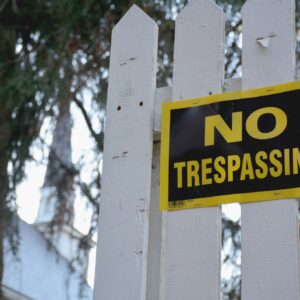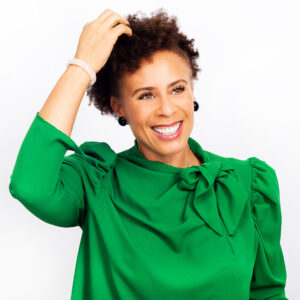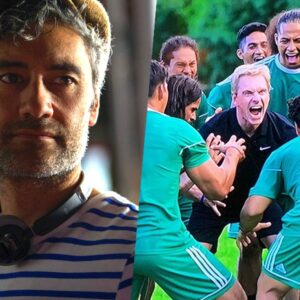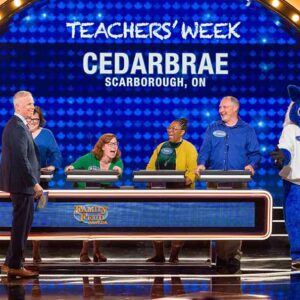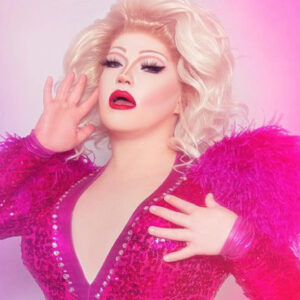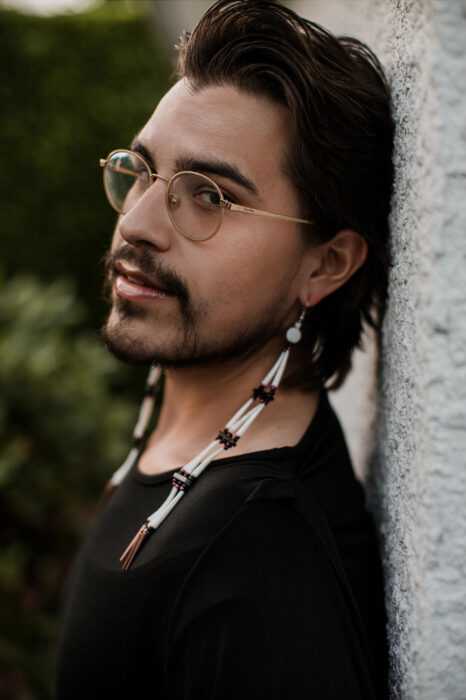
It’s that time again. Time to let up-and-coming Indigenous writers know applications are being accepted for the Audible Indigenous Writers’ Circle and program mentors have been announced.
The program is open to those who self-identify as First Nations, Inuit and Métis emerging writers and the deadline to apply is April 14.
The mentorship and workshop program aims to help emerging Indigenous writers elevate and develop their stories. The Audible Indigenous Writers’ Circle has partnered with eight mentors and is looking for 24 writers to participate. Author Joshua Whitehead (Making Love with the Land, Full-Metal Indigiqueer, Johnny Appleseed) has been selected as one of the mentors this round and we caught up with him to chat about who he is as a writer and what he is going to bring to the program.
Whitehead is a Canadian First Nations, two-spirit poet and novelist. An Oji-Cree member of Peguis First Nation, he began publishing poetry while pursuing undergraduate studies at the University of Winnipeg. Whitehead is from Selkirk, Man., yet has been living and working in Calgary for the last seven years. Whitehead is slated to be a mentor in Audible’s third Indigenous Writers’ Circle.
TRT: What excites you about helping someone learn who they are as a writer?
Joshua: There’s something exciting about the ideas that writers have. I think the younger generation has very radical political ideas around mobilization, abolition, and also an inherent unique ability to kind of merge genres. I’m really excited to see what energizing political narratives emerging Indigenous youth are going to bring to the table.
TRT: What are your favourite types of storytelling?
Joshua: I’m a bit of a jack of all trades. Poet. Novelist. Essayist. So I don’t really kind of see or care for the kind of differentiations between genre or form. I’m not looking for anything specific around form or genre. Rather what I’m looking for is someone who at least has an ear and an eye on the page for just the way language works.
TRT: In what ways do the places you call home influence the way you write?
Joshua: I find if I am writing in Alberta I am very much more attuned to the geography and landscape there. So I think I write in a more rhythmic space vs. In Manitoba where it’s -40 C for a bit, then 40 C. You get mosquitoes. It’s more staccato and grounded. It’s interesting to me to see how space and place really influence the rhythms of my thinking. If I’m sweating bullets, or I’m frigid cold, it affects the body. To me, the body kind of translates emotional and physical states onto the page.
TRT: What will you expect from who you mentor?
Joshua: I’m a rigorous reader of literature, that’s my job, but it’s also my passion in life. I’m also someone who likes to think intertextually so things merge and hybridize and mutate. If you read any of my books, you can see there’s kind of a musical accompaniment to them. Johnny Appleseed was kind of the pop disco diva. Making Love with the Land was very country. Full-Metal Indigiqueer was very techno and pop culture references a lot in my work. What I’m expecting is a level of rigour to the daily rhythms of our lives. Be it music, watching television, reading, conversations that we are privy to at all times in boardrooms or on a bus, and being able to kind of merge that all into the type of story that they’re trying to tell.
TRT: What are some ways you critique your own work?
Joshua: I’m working on a new novel, which I could call queer apocalyptic fiction. It’s the first time I’m doing something that’s purely from research-creation. So I’m reading. I’m in the archives. I’m going to these places to take field notes. My first few books are very personal, something we might call auto-fiction or biographical poetics. I’m a big critic of myself right now. It’s exhaustive, excavating work to be doing. I guess I’m trying to remind myself that not all writing can be fuelled by injury. Be mindful of what we’re putting on the page, where it’s coming from, and that we’re leaving the book in a space where we are not completely depleted.
TRT: How does being two-spirit influence your writing?
Joshua: As an Indigenous writer, if I write about white men in Paris, would that still be Indigenous writing? Yeah, it would be because I am an Indigenous writer. The only book of mine that I intentionally infused queerness into as a priority was Johnny Appleseed. And I did so because I didn’t see any strong accounts of two-spirit characters or worldviews in literature that weren’t appropriated. In Making Love with the Land and Full-Metal, the idea of being two-spirit is attached — umbilical — and it is featured peripherally. I didn’t put it into the focus. Making Love with the Land was about mental health. But of course, you have to think about that from a queer angle too. And this new book that I’m working on does feature queer characters, but it’s not supposed to be in a way of teaching or pedagogical. It’s supposed to be so normalized that it’s just there. And no one has to explain that this person grew up gay in the ‘90s and experienced this.
TRT: Why did you want to be a mentor?
Joshua: The idea that writers are solitary old sailors who drink whiskey and write all night like Hemingway is very much not it. I don’t write in a vacuum. I’ve had amazing mentors who have gifted me and built me up. I’m just very excited to give back because there’s no point moving forward and closing doors behind you.
TRT: Why is storytelling important?
Joshua: I think stories are the most powerful tool we have in any language. Everything is kind of a curation of story. So if you can read story, know story and critique story, or reformulate story, that is a very fundamental, powerful tool of politics. At the end of the day, I just want to encourage people to tell stories because sometimes they save lives.
TRT: What are some areas in your own storytelling you could grow in?
Joshua: I could be a little more organized. I am a Capricorn and not a very good one. So I don’t have a very set schedule for writing. I’m very erratic. I’m well known to burn the midnight oil and work until the sun has come up. I guess I would think about a more rudimentary writing schedule, but that’s difficult to say when you have two jobs and a dog too. I think I would like to be a little more joyful in my writing.
TRT: What is something you hope your students learn from you?
Joshua: Take what you’ve learned and pass it on. Become a mentor yourself. I’m also a mentee, and I’m a mentor. take what you’ve learned and infuse it with your own knowledge and pass that on to maybe an up-and-coming Indigenous youth.


